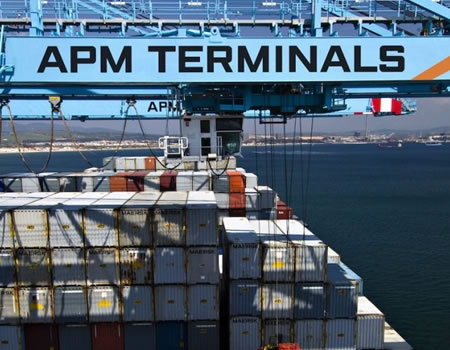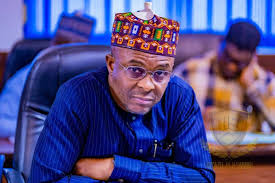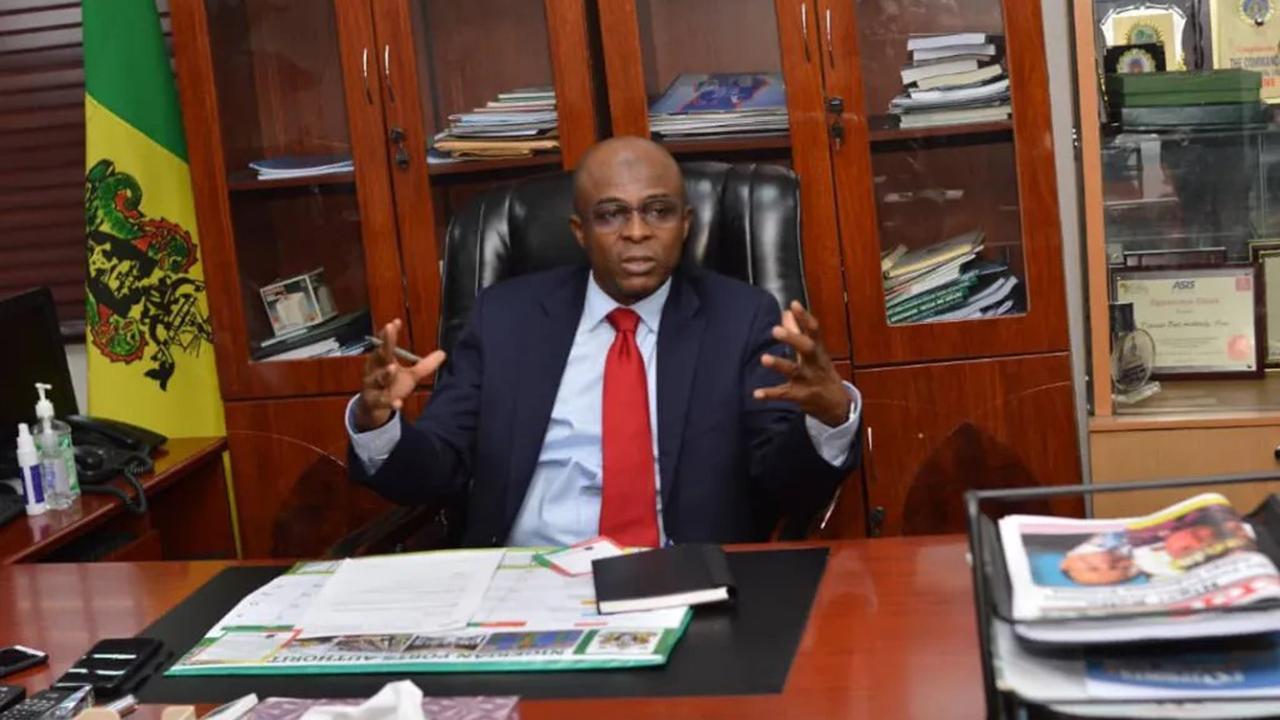Dantsoho's Transformational Leadership at NPA
Less than a year since his appointment as the Managing Director/CEO of the Nigerian Ports Authority, Dr. Dantsoho has has redefined the course of port management in West and Central Africa, posits
In the intricate theatre of maritime administration, where commerce, diplomacy, and infrastructure intersect with national development, few figures have risen with the poise, purpose, and profound impact of Dr. Abubakar Dantsoho. Since his landmark appointment by President Bola Ahmed Tinubu on Friday, July 12, 2024, as the Managing Director/CEO of the Nigerian Ports Authority (NPA), Dr. Dantsoho has not only steered the ship of the NPA through complex waters—he has redefined the course of port management in West and Central Africa.
In a year replete with remarkable milestones, none is more emblematic of Dantsoho’s ascent than his historic election as Chairman of the Port Management Association of West and Central Africa (PMAWCA). Earning this honour in November 2024, during the closing ceremony of PMAWCA’s 44th annual council in Conakry, Guinea, he became the first Nigerian ever to hold this prestigious position. This singular achievement not only underscores his personal credentials but also signals the rising influence of Nigeria within continental maritime governance.
This honour was not gifted; it was earned through deft diplomacy, technical acumen, and an unwavering commitment to elevating port standards and cooperation across the region. It reflects the collective confidence of member nations in Dantsoho’s ability to advance the shared aspirations of West and Central Africa’s maritime economy.
Perhaps the most staggering testament to Dantsoho’s leadership is the transformation of the NPA’s revenue profile. In a single fiscal year, the Authority’s earnings surged from N424.2 billion in 2023 to an astounding N893.6 billion in 2024—a 111 per cent leap that has not only outpaced projections but also revitalized national conversations around the economic potential of Nigerian ports.
Such an exponential increase is no accident. It is the product of a deliberate strategy anchored in digital transformation, strategic investments, and fiscal transparency. Under Dantsoho’s stewardship, the NPA has aggressively pursued the digitalization of port operations and the introduction of a robust Port Community System (PCS)—a twin initiative that is rapidly closing the leakages through which corruption once seeped and productivity once waned.
Beyond the balance sheets, Dantsoho’s legacy is being etched into the very fabric of NPA’s institutional culture. His tenure has catalyzed a revolution in employee welfare and industrial relations, breaking through bureaucratic inertia to address long-standing grievances.
With the unflinching support of the Minister of Marine and Blue Economy, Adegboyega Oyetola, Dantsoho facilitated a decisive intervention into the chronic issue of employee stagnation. The greenlight for long-delayed promotion examinations has rejuvenated morale within the ranks, earning commendations from labour unions, including the Maritime Workers Union of Nigeria (MWUN) and the Senior Staff Association of Statutory Corporations and Government-Owned Companies (SSACGOC).
In a letter that resonates with genuine gratitude, SSACGOC President Comrade Akinola Bodunde hailed the increase in productivity bonuses, distribution of end-of-year welfare items, and a timely review of the Financial Guide to the Condition of Service—a document now sensitively attuned to Nigeria’s inflationary realities.
Dantsoho, ever the statesman, attributed these successes to collective synergy—especially praising both the leaderships of both SSACGOC and MWUN for their unwavering dedication to industrial harmony.
Underpinning Dantsoho’s broader vision is a commitment to national competitiveness through port rehabilitation and modernization. Guided by the Federal Government’s overarching blueprint, the NPA under his charge has embarked on infrastructure renewal that prioritizes logistics efficiency, channel deepening, and the accommodation of larger vessels—thereby positioning Nigeria as a formidable maritime hub on the Gulf of Guinea.
Equally transformative has been the simplification of export procedures through the creation of Export Processing Terminals (EPTs). By streamlining what was once an arduous and opaque process, the NPA is unlocking new frontiers in non-oil export promotion—a vital lever in Nigeria’s quest for economic diversification and a favourable balance of trade.
As the NPA sails into deeper waters, guided by the steady hands of Dr. Abubakar Dantsoho, it does so with newfound purpose and poise. His leadership is not just a chapter in Nigeria’s maritime history—it is a turning point. From regional prominence and revenue windfalls to technological modernization and humane governance, Dantsoho’s tenure is sculpting a legacy of vision, integrity, and transformational impact.
At a recent capacity building workshop for journalists organised by Medallion Continental Alliance in Lagos, NPA’s General Manager, Corporate and Strategic Communications, Sir Ikechukwu Onyemekara, said Dr. Dantsoho envisions Nigeria as a maritime logistics hub within Africa, particularly under the Africa Continental Free Trade Area (AfCFTA) framework.
Onyemekara said by re-engineering operational structures and supporting initiatives like the National Single Window, the NPA aims to improve cargo dwell-time and trade efficiency, thereby enhancing Nigeria’s standing in the global maritime community.
“Dr. Abubakar Dantsoho’s tenure as Managing Director of the Nigerian Ports Authority heralds a new era of efficiency, innovation, and regional leadership. Through strategic reforms, digital transformation, and a steadfast commitment to employee welfare, he is not only redefining Nigeria’s maritime landscape but also setting a benchmark for excellence in port management across Africa,” he added.
Just last week, the Presidential Enabling Business Environment Council (PEBEC) and the Nigerian Ports Authority, launched the Ports and Customs Efficiency Commitee (PCEC), a move aimed at enhanced efficiency and ease of doing business at the nation’s sea ports.
Speaking at the inaugural meeting of the PCEC, in Lagos, the director general, PEBEC, Zahrah Mustapha, said improving efficiencies at the nation’s seaports would reduce cargo dwell time, vessel turnaround and turnover for Customers.
According to the PEBEC boss, the committee was launched to change the narrative of missed opportunities in the maritime sector and as well unlock potential opportunities, and enhancing Nigeria’s economy.
“By improving efficiencies in our ports, we can drastically reduce the average cargo dwell time and turnover time for customers, eliminate duplication of documentation and manual processes, and ensure customers’ satisfaction.
“This is not just another one of our reforms, but this is about resilience, it’s about unlocking potential opportunities, and enhancing Nigeria’s economy. This is not just a committee made up of government force for a difference, this also has a lot of private sector stakeholders.
“It is a call to action for terminal operators to improve infrastructure and for shipping companies to increase efficiency so as to reduce delays, for freight forwarders to uphold compliance, and for regulators to reduce bureaucratic bottlenecks. It is a call for shared ownership of our shared problem and a commitment to deliver a shared solution,” she stated.
Speaking on missed opportunities, Audu stated that Customs Committee was established to go beyond identifying the problems but to begin implementing the solutions that are long overdue.
According to her, “Nigeria loses a lot every single day due to some of our inefficiencies. These are not just numbers, these are missed opportunities. They represent jobs not created, goods not delivered, investments not realised, and economic growth that is unnecessarily delayed. The Ports and Customs Efficiency Committee has been established to change this narrative, to go beyond identifying the problems we already know and begin implementing the solutions we all agree are long overdue.
“At PEBEC, our mandate has been very clear to remove bureaucratic bottlenecks that will allow people do business at Nigerian seaports. Since 2016, we have driven over 200 reforms across sectors, collaborating with ministries, departments, agencies, and private sector and since I came on board, I’ve taken it one step forward. So beyond passing or helping pass reforms or policies, it’s time for us to focus on implementation and practical output of what these reforms can translate into. This is why this committee is important to us.”
“The Parts and Customs Efficiency Committee is not an observer group, it is an action-oriented, high-impact one, charged with driving sustainable improvement in service delivery at the Nigerian ports working hand-in-hand with agencies like the Nigerian Ports Authority, the Nigerian Customs Services, and other government agencies within the ports, technical operators, shipping companies, freight haulers, logistic providers, exporters, manufacturers, and policymakers, this is a reform ecosystem that accommodates everyone,” Audu stated.
Speaking, Dantsoho, said the NPA is currently adressing four major pillars that are critical to repositioning the nation’s seaports and make it compete effectively with regional counterparts.
According to the NPA boss, investment in infrastructure, equipment, technology, and human capacity would improve competitiveness and operational efficiency of the nation’s seqports.
Dantsoho noted that port infrastructure, particularly in Apapa and Tin Can Island Ports, is aged and in dire need of rehabilitation. “Tin Can was constructed about 48 years ago, Apapa almost 100 years ago—yet no major rehabilitation has taken place all these years,” he said. He added that recent government approval for the reconstruction of both ports would significantly improve berth depth and cargo handling capacity.
On the technological front, the NPA MD disclosed that the agency is working closely with the International Maritime Organization (IMO) to deploy the Port Community System (PCS), which he described as the backbone for the National Single Window.
He stressed that PCS will eliminate paperwork and reduce human interface, thereby improving transparency, reducing cost, and boosting efficiency and revenue generation.
In terms of human capital, Dantsoho said the NPA is intensifying efforts to upgrade the skills of pilots and technical personnel to meet modern navigational and operational demands.
He concluded by reiterating the importance of inter-agency collaboration across all operational areas.
“NPA cannot do it alone. Efficiency must cut across all segments if we are to truly optimize revenue and compete globally,” he said.
In a world where institutions often outlive the men who lead them, it is rare to find a man whose leadership redefines the institution itself. Dr. Abubakar Dantsoho is such a man—a captain of consequence at the helm of the Nigerian Ports Authority.
“In a year replete with remarkable milestones, none is more emblematic of Dantsoho’s ascent than his historic election as Chairman of the Port Management Association of West and Central Africa (PMAWCA). Earning this honour in November 2024, during the closing ceremony of PMAWCA’s 44th annual council in Conakry, Guinea, he became the first Nigerian ever to hold this prestigious position. This singular achievement not only underscores his personal credentials but also signals the rising influence of Nigeria within continental maritime governance.”











